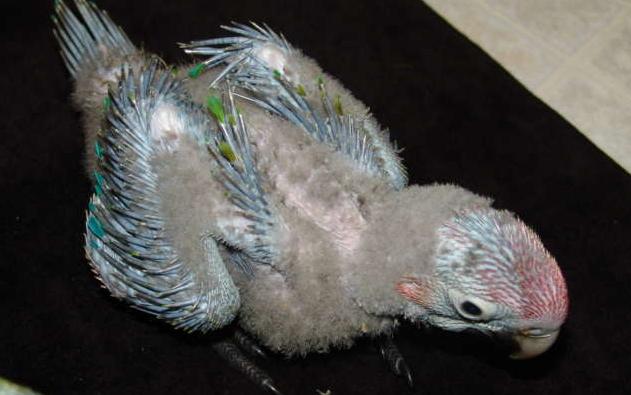Macaw - Flame
Scientific Name: Ara
Wed, 8th January, 2025 - 6:42 am GMT
Sponsor Ads:

Alternative Name
Scientific Name: AraBasic Info
Many people are extremely against breeding hybrid Macaws. While hybrids like the Capri Macaw are extremely colorful and may fetch higher prices than fullblood Macaws, they also may look very much like fullblood Macaws and may be accidentally bred under false impressions. The offspring will not be pure and will have different temperaments than those that would have resulted from a pure fullblood cross. Also, because it is illegal to own wild-caught Macaws, captive Macaw bloodlines must be kept pure or no more pure Macaws will exist in captivity. Last, the problem with hybrid Macaws is that purebred Macaws are becoming extinct in the wild. In the future, captive bloodlines and breeding programs may become important in preserving species. If the bloodlines are diluted by accidental or intentional crossing with hybrids, certain species of Macaws could disappear forever.
Health
Flame Macaws should always have sunlight and fresh water available to them. They should be fed a variety of fruits and vegetables, greens, grains, nuts, seeds, and a mineral supplement along with peanut butter or other fatty, high-protein treats. They may be hand-reared on biscuit, porridge, and white bread. Flame Macaws will be noisy like most Macaws and requiring lots of attention and playtime! Breeding Since there is so much controversy as to whether or not hybrid macaws should be bred in captivity, it would be best to really think about the outcome of losing the pure breeds. If nothing else, at least do some research and try to make an educated decision.Habitat
N/ABehavior
Although many breeders do not believe hybrid Macaws should be perpetuated, all agree that the Flame Macaw is an incredibly beautiful bird regardless of the issues behind it. Little is known about the temperament of the Flame Macaw because hybrid Macaws tend to have rather unpredictable or inconsistent temperaments. While purebred Macaws are bred for certain traits, hybrids usually are not bred for personality but color, which means their characters may be uncertain. The best way to determine a Macaw's temperament is to purchase it when it is eight to ten years old and has fully developed its unique character. Very young Flame Macaws may change their personality as they grow. Special care should be taken in socializing Flame Macaws to be sure that they will make suitable pets, since they are a cross between a breed of Macaw known for its sweet temperament and another Macaw type known for its difficult temperament. Like all Macaws, the Flame Macaw needs a large outdoor aviary of 24 by nine by six feet with an enclosed shelter, constructed of strong wire or chain link. These birds are avid chewers and need plenty of wood, as bored Flame Macaws will be destructive, chewing on their cage or anything else they can find! Inquisitive by nature, Flame Macaws relate to the world by chewing on things, "feeling" them with their mouths! This means gentle biting characterizes their behavior, but sharp bites may be inflicted when the Macaw becomes upset or frightened. Flame Macaws should always have sunlight and fresh water available to them. Flame Macaws will be noisy like most Macaws and requiring lots of attention and playtime!Origin
N/AHistory
Flame Macaws are large, strikingly colored birds. They are quite expensive and may be difficult to find. To produce a Flame Macaw, you must cross a Green-Winged Macaw and hybrid Catalina Macaw. Catalina Macaws are a cross between Blue and Gold Macaws and Scarlet Macaws.Common Foods
They should be fed a variety of fruits and vegetables, greens, grains, nuts, seeds, and a mineral supplement along with peanut butter or other fatty, high-protein treats. They may be hand-reared on biscuit, porridge, and white bread.Sponsor Ads:
No one recovers from the disease of being born; a deadly wound if there ever was one. --E. M. Cioran
Macaw - Flame
Coded by: BGID® | ALL RIGHTS RESERVED Copyright © 2000-2025
Disclaimer | Privacy | Report Errors / Contact | Credits


 Preparing For China. China is growing their military. China Military Technology - can it keep up with the US?
Preparing For China. China is growing their military. China Military Technology - can it keep up with the US?  versus
versus 

 versus
versus 
 This Thread is about the North Korean Military itself - the kind of army, navy, and air force they have.
This Thread is about the North Korean Military itself - the kind of army, navy, and air force they have. 
 versus
versus 
 versus
versus  versus
versus